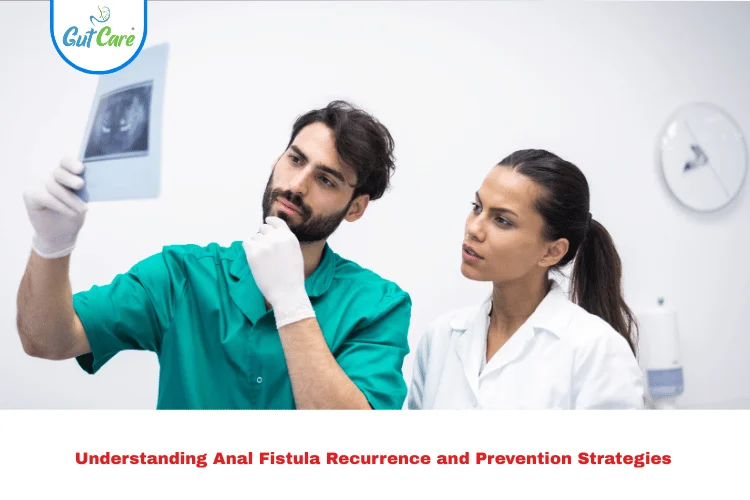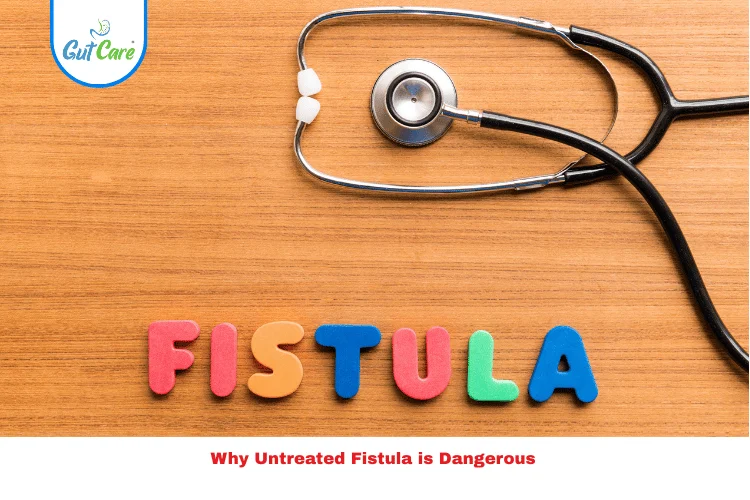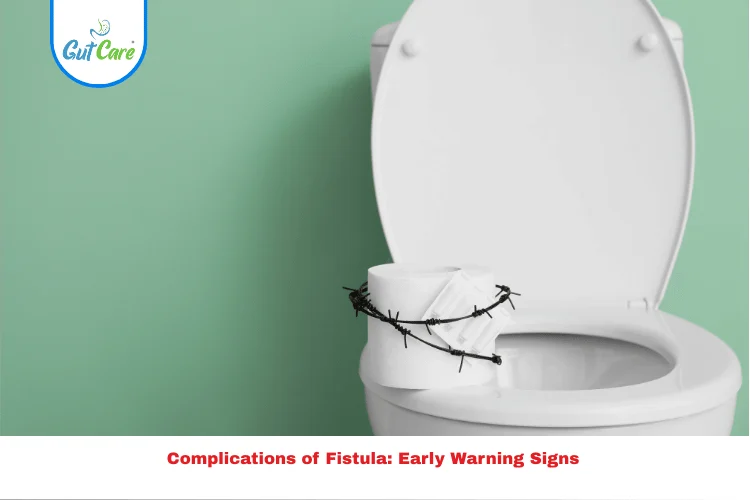Is the pain of having an anal fistula hindering your normal activities? Don’t worry. Thousands endure pain, swelling, and irritation because of this affliction, but the best news is that your relief is coming soon. The minimally invasive fistula operation provides a quicker, less discomforting option to return you to your normal functioning sooner. If you are thinking of undergoing fistula surgery, it’s essential to prepare well in advance to avoid a stressful recovery process. Here is a guide to help you prepare for surgery so that you feel confident and ready to undergo the procedure.
Understanding Fistula Surgery
Fistula surgery is a surgical procedure that seeks to treat anal fistulas—abnormal tunnels that develop between the anal canal and the skin, usually due to an unresolved infection or abscess. If left untreated, these fistulas can cause chronic pain, swelling, and discharge, impacting your quality of life.
There are different types of fistula surgery, including:
- Laser fistula surgery: Laser energy is employed to close the tract of a fistula with a minimally invasive procedure that leaves less tissue damaged, provides quicker recovery, and causes little scarring.
- Seton placement: A surgeon places a surgical thread (seton) in the fistula to encourage drainage and gradual healing, usually used for more severe or deeper fistulas.
- Traditional fistula operation: More extensive surgery is employed, and more complicated or recurring fistulas might require it.
In some cases, patients may also undergo perianal abscess surgery, which treats the underlying infection that often accompanies an anal fistula.
Why Pre-Surgery Preparation Matters
Proper preoperative care is crucial to minimizing surgical complications, reducing fistula surgery cost, and ensuring a faster, smoother recovery. Here’s why preparing for your procedure matters:
- Minimized risks: Optimal preparation eliminates the possibility of complications during and after surgery.
- Reduced costs: Careful pre-op planning can keep the possibility of long-term stays in the hospital low, saving you money in the long run.
- Rapid recovery: Preparing your body for the task will heal sooner, allowing you to get on with your activities sooner.
- Emotional calmness: Having foreknowledge eliminates a great deal of anxiety and sense of uncertainty associated with the experience.
Pre-Op Checklist for Fistula Surgery
1. Medical Consultation & Diagnostic Testing
The first step is a thorough consultation with an experienced colorectal surgeon. The doctor will evaluate your condition and determine the best surgical approach. Diagnostic tests commonly recommended include:
- MRI scans for deep or complex fistulas
- Fistulography to map out the fistula tract
- Blood tests to check for underlying infections or health conditions
These tests help the surgeon plan the procedure, whether it’s anal fistula surgery, laser fistula surgery, or seton placement.
2. Talk About Your Medications
Telling your surgeon about all of your current medications, including any supplements, is crucial. Long before your surgery, you might be asked to stop taking certain medications, such as blood thinners or anti-inflammatory drugs. Your doctor might suggest changing your medication for long-term conditions like diabetes or high blood pressure.
3. Dietary Guidelines & Fasting
During the days before your surgery, observe dietary guidelines from your physician. Most often, patients are instructed to:
- Consume a light, low-fiber meal 24 hours prior to surgery
- Stay hydrated
- Avoid food or fluid intake for 6–8 hours prior to procedure (as instructed)
Observing these instructions will cause your stomach to be free of food prior to the operation, decreasing the risk for complications due to anesthesia.
4. Bowel Preparation
In preparation for fistula surgery, you may need to take a mild laxative or use an enema the night before your surgery. This is especially important for patients undergoing perianal abscess surgery or more invasive fistula operations. A clean bowel ensures that your surgeon has a clear field to work in, reducing the risk of infection.
5. Lifestyle Changes
- Quit smoking: Smoking will interfere with wound healing and add to the risk of complications. Try to quit smoking at least one week prior to surgery.
- Avoid alcohol: Alcohol may interact with anesthesia and drugs, so it’s a good idea to avoid it for at least 48 hours before surgery.
- Get plenty of rest: Getting well-rested provides your immune system a boost and helps to prepare your body to heal.
6. Pack for the Hospital
Make sure to bring the following items to the hospital:
- Personal ID and insurance information
- Copies of any recent medical test results
- Comfortable, loose-fitting clothing
- A list of all current medications
Avoid bringing valuables such as jewelry or large amounts of cash.
7. Arrange Transportation & Aftercare
Even for laser fistula surgery or a minimally invasive fistula operation, you’ll need someone to drive you home afterward. Arrange for a family member or friend to stay with you for the first 24–48 hours after surgery to assist with your recovery.
Prepare your home for your return:
- Stock up on soft foods and essential medications
- Set up a clean, comfortable area for resting
- Avoid stairs if possible during the early recovery phase
8. Mental & Emotional Preparation
Allow yourself time to talk to your doctor about any issues you have. Knowing what will happen in the procedure, anesthesia choices, recovery time, and pain management schedule will make you feel more comfortable and in charge of your process.
What to Expect on Surgery Day
On the day of your fistula surgery, here’s what you can expect:
- You will arrive at the hospital, where you’ll check in and complete any necessary paperwork.
- A nurse will prepare you for surgery by giving you a hospital gown and starting an IV line.
- The anesthesiologist will discuss your sedation plan, which may include local or general anesthesia depending on the complexity of the surgery.
- The surgery itself will typically take between 30 to 90 minutes.
Once the procedure is completed, you’ll be moved to a recovery room where you’ll be monitored. Most patients who undergo laser fistula surgery or other minimally invasive procedures can go home the same day.
Your doctor will provide detailed instructions for post-operative care, which will include wound care, pain management, and advice on managing bowel movements.
Managing Fistula Surgery Cost Effectively
The fistula surgery cost can vary depending on the complexity of the surgery, the type of procedure performed, and the healthcare facility you choose. In cities like Bangalore, fistula surgery is often more affordable compared to other countries while maintaining high-quality care.
To manage costs, consider the following:
- Insurance coverage: Contact your provider to find out what is covered under your plan.
- Minimally invasive procedures: Opt for procedures such as laser fistula surgery or seton placement, which tend to cost less in the long run.
- Package deals: Opt for hospitals providing bundled treatment packages that include surgery, follow-up visits, and medications.
Many people also opt for medical tourism in Bangalore for affordable and high-quality treatment.
Conclusion
Proper preparation is essential to a successful fistula surgery recovery. From adhering to medical directives to psychological preparation and planning logistics, every step works toward improved results. Whether you’re having anal fistula surgery, fistula operation, or perianal abscess surgery, being prepared will put you in the way of a quick and successful recovery.
At GutCare Clinics in Bangalore, we have specialized in minimally invasive procedures for anal fistulas. Our skilled surgeons employ the best techniques to provide the best outcome and rapid recovery. Call us today to book an appointment and get started on the path to a life free from pain.
FAQs
1. Do I actually need fistula surgery?
Yes, if pain, swelling, or discharge continue, fistula surgery is typically needed to avoid complications.
2. Is laser fistula surgery effective?
Yes. It’s a minimally invasive procedure, with faster recovery and less risk compared to traditional procedures.
3. How much does fistula surgery cost in Bangalore?
The cost of fistula surgery generally varies between ₹50,000 and ₹1,50,000, depending on the procedure and hospital.
4. What do I eat prior to and following surgery?
Light preoperative meals; soft, high-fiber foods post-op. Drink liquids as needed, avoid straining with bowel movements.
5. How long does it take to recover?
A few days’ recovery from laser fistula surgery is possible, while conventional fistula surgery could require 2–3 weeks.




